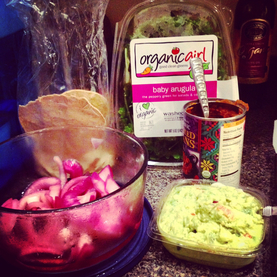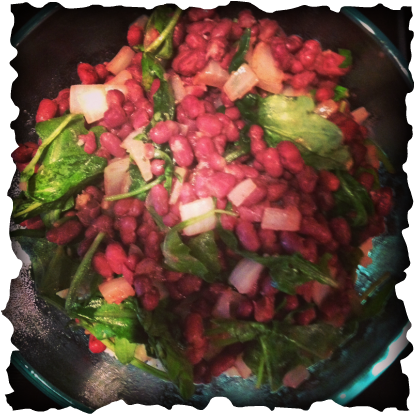As promised I would start to discuss some of the recent research in the nutrition world. This one I found of particular interest since it’s during a life cycle period where there seems to be a lot of stress already, during adolescence. Neuro-Nutrition has been shown to be so important for our best thinking and therefore feeling as a result.
What if your teenager eating fast food and a highly processed diet was setting their long term mood thermostat? Well it appears, that might be what is actually occurring. Researchers from Emory University have discovered that mice fed a high-fructose diet during adolescence led to higher stress response leading to set the neuronal pathways for depression and anxiety. Yet, this same finding wasn’t evident in the adult mice fed the same high fructose diet. “It also stimulates neural pathways that affect how the brain responds to stress, which can have important behavioral effects, including the worsening of symptoms related to depression and anxiety. Such effects are of particular concern during the teen years, which is a critical time for the development of the brain's stress response, “as noted by lead author Constance Harrell of Emory University in Atlanta 1.
So what is a high fructose diet anyways you may ask? Fruits and vegetables naturally contain fructose, as does honey. Those foods most likely aren’t the issue. It’s more like this problematic list of high fructose sources:
· High Fructose Corn Syrup
· Agave Nectar
· Processed foods containing adding sugars
· Sugar-sweetened beverages
· High Energy Drinks
Sources: 1. Emory Health Sciences. "High-fructose diet in adolescence may exacerbate depressive-like behavior." ScienceDaily. ScienceDaily, 18 November 2014. <www.sciencedaily.com/releases/2014/11/141118141852.htm>.
What if your teenager eating fast food and a highly processed diet was setting their long term mood thermostat? Well it appears, that might be what is actually occurring. Researchers from Emory University have discovered that mice fed a high-fructose diet during adolescence led to higher stress response leading to set the neuronal pathways for depression and anxiety. Yet, this same finding wasn’t evident in the adult mice fed the same high fructose diet. “It also stimulates neural pathways that affect how the brain responds to stress, which can have important behavioral effects, including the worsening of symptoms related to depression and anxiety. Such effects are of particular concern during the teen years, which is a critical time for the development of the brain's stress response, “as noted by lead author Constance Harrell of Emory University in Atlanta 1.
So what is a high fructose diet anyways you may ask? Fruits and vegetables naturally contain fructose, as does honey. Those foods most likely aren’t the issue. It’s more like this problematic list of high fructose sources:
· High Fructose Corn Syrup
· Agave Nectar
· Processed foods containing adding sugars
· Sugar-sweetened beverages
· High Energy Drinks
Sources: 1. Emory Health Sciences. "High-fructose diet in adolescence may exacerbate depressive-like behavior." ScienceDaily. ScienceDaily, 18 November 2014. <www.sciencedaily.com/releases/2014/11/141118141852.htm>.
Please enjoy Dr. Lustig's presentation on excess sugars and their effects on our kids. If you like this information and want help implementing these changes in your families diet contact us, Think Nutrition!





 RSS Feed
RSS Feed

